#and eat a varied diet or whatever
Explore tagged Tumblr posts
Text
are we going to talk about how expensive it is to eat healthily because i feel like i'm losing my mind
#in one of my worst depressive states i ate chicken flavour instant noodles for every meal#i got them in packs of eight from the corner shop#i was. so hungry all the time and so so unhealthy and so so SO unhappy#and now i'm in a massively better mental state and i'm trying to eat fruit and veg and protein for every meal#and eat a varied diet or whatever#and i do genuinely feel so much better when i do that!!!#but i am losing my MIND at how expensive it is..... i feel like i go to the shop almost every single day and spend £15???#fruit and veg go off so quickly so you have to eat them... and then once u've eaten them u have to buy more...#AND IT NEVER STOPS#i'm trying to have a healthy relationship with food but these prices are making me miss my chicken noodle diet#HELP#desperately craving a salad but a head of lettuce might bankrupt me rn 😔#🧃
4 notes
·
View notes
Text
one of my favourite things about tony is that he'll eat anything that sounds good to him? he has gluten free waffles for breakfast and offers green superfood smoothies to everyone and orders a plate of fresh veggies at a pub and tried to swear off dairy, but he gave that up when ben & jerrys named a flavour after him and had a box of donuts for his hangover breakfast and inhaled several burger king cheeseburgers in a row and tried to have a whole pizza as a workshop snack, but he also has sashimi with sake on his private jet because he insists you can't have one without the other and refuses to swallow a bite of a walnut date loaf even though he's already chewed it up, but also when he's banged up and tired he just wants shawarma or a tuna fish sandwich. i love him so much
#i don't know why i love that about him so much 🤭#it feels true to his character that he can afford to have any kind of outrageous diet but he just eats whatever he wants#like okay king go off with the intuitive eating and varied diet#tony stark#*#text*
178 notes
·
View notes
Text
i know a lot of people say things like 'if my post doesn't apply to you then its not for you' when they make advice posts, which i totally get. but when people make posts dissing picky eaters or adult cartoon fans or whatever, and other people point out that includes disabled adults, i feel like "oh i didn't mean them!" doesn't really work, y'know?
#mickey.txt#obviously its important for people esp adults to vary their diets and the media they consume and to exercise#and OBVIOUSLY disability doesn't excuse ignorance and bigotry#but let's be real: 95% of the time someone makes a generalization like#'people who can't order food without stuttering' or whatever#they're thinking of or vaguing a specific person they know#either online or irl#and honestly its fine if they don't like them or find them annoying or whatever#*what i mean is that unless someone specifically tells you. you don't know why they do what they do*#you don't know if they're disabled or mentally ill or what condition they have#again i wanna emphasize that disability and mental illness doesn't excuse being shitty#i'm talking about 'annoying' behaviors#like. sometimes disabled adults can only shower once a week. or they perfer cartoons over live action movies#or they only eat chicken nuggets and mac & cheese#or they cannot eat vegetables at all or WHATEVER#and again you can be annoyed by whoever. just remember you do not know WHY that specific person is like that#im rambling and idk 'its not that deep' but i hope i'm being clear#ik tone can be hard to read online but at times it feels we're sliding back into a bully culture yknow?#WAIT i didn't touch on it but i'm including 'girls who only had ice coffee for lunch' in this#because thats not a diet culture thing most of those girls bragging about that have an eating disorder
0 notes
Note
wait, are the health claims from bone broth bogus? (genuine/good faith question). i’ve always heard that it’s high in collagen, which supposedly is good for you and better if you get it ‘naturally’ like from bone broth. is that another thing that’s not actually true, or wildly exaggerated?
Bone broth has been eaten for centuries in various cultures because it is easy to digest and believed to have healing properties. Chicken broth is highly valued by some as a remedy for the flu. In more recent years it has been promoted to help symptoms from psychiatric and neurodevelopmental disorders including autism and attention-deficit hyperactivity. [7] Claims that it detoxifies the liver, improves digestion, reverses wrinkles, builds bones, and relieves join pain have led some marketing analysts to predict that the bone broth market will approach $3 billion by 2024. [8] In reality, bone broth contains only small amounts of minerals naturally found in bone including calcium, magnesium, potassium, iron, phosphorus, sodium, and copper. The amount of protein, obtained from the gelatin, varies from 5-10 grams per cup. There is some concern that bone broth contains toxic metals like lead. One small study found that bone broth made from chicken bones contained three times the lead as chicken broth made with the meat only. [7] However the amount of lead in the bone broth per serving was still less than half the amount permitted by the Environmental Protection Agency in drinking water. A different study found that bone broth, both homemade and commercially produced, contained low levels (<5% RDA) of calcium and magnesium as well as heavy metals like lead and cadmium. [9] The study noted that various factors can affect the amount of protein and minerals extracted in bone broth: the amount of acidity, cooking time, cooking temperature, and type of animal bone used. Therefore it is likely that the nutritional value of bone broths will vary widely.
(Source: https://nutritionsource.hsph.harvard.edu/collagen/)
Your body makes collagen; eating collagen will put the things that make collagen into your body to make collagen with, but so will eating things that go into making collagen (amino acids, basically).
There's not good evidence that eating a ton of collagen or supplementing collagen improves your body's collagen production, and studies on collagen supplementation tend to be done by companies that make collagen supplements or produce expensive bone broth.
Basically if you're eating the 9 essential amino acids by consuming complete proteins (which can be done on any kind of diet, vegan or vegetarian or including meat - this is NOT one of those things your body relies on animal products to produce) your body is going to make collagen and it's going to have the amino acids handy to make collagen; consuming more collagen may mean that your body has more of those collagen-forming amino acids on hand, but it doesn't mean that your body is going to be any more efficient at producing collagen (and your body is going to become less efficient at producing collagen as you age).
But yeah bone broth health claims are primarily bogus. If you want more collagen in your diet for whatever reason, it's probably about as effective to eat jello as it is to eat bone broth but also more collagen in your diet likely isn't doing anything special.
1K notes
·
View notes
Text
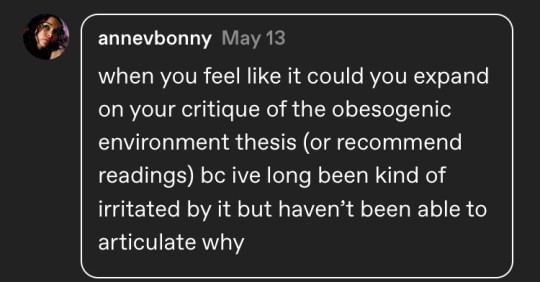
@annevbonny yeah so first of all there's the overt framing issue that this whole idea rests on the premise that eliminating fatness is both possible and good, as though like. fat people haven't existed prior to the ~industrial revolution~ lol
more granularly this theory relies on misinterpreting the causes for the link between poverty and fatness (which is real---they are correlated) so that fatness can be configured as a failure of eating choices and urban design, meaning ofc that the 'solution' to this problem is more socially hygienic, monitored, controlled communities where everybody has been properly educated into the proper affective enjoyment of spinach and bike riding, and no one is fat anymore and the labour force lives for longer and generates more value for employers
in truth one of the biggest mediating factors in the poverty-body weight link is food insecurity, because intermittent access to food tends to result in periods of under-nourishment followed by periods of compensatory eating with corresponding weight regain/overshoot (this is typical of weight trajectories in anyone refeeding after a period of starvation or under-eating, for any reason). so this is all to say that the suggestion that fatness is caused by access to 'unhealthy foods' is not only off base but extremely harmful; food insecurity is rampant globally. what people need is consistent access to food, and more of it!
and [loud obvious disclaimer voice] although i absolutely agree that food justice means access to a variety of foods with a variety of nutrient profiles, access to any calories at all is always better than access to none or too few. which is to say, there aren't 'healthy' or 'unhealthy' foods in isolation (all foods can belong in a varied, sufficient diet) and this is a billion times more true when we are talking about people struggling to consume enough calories in the first place.
relatedly, proponents of the 'obesogenic environment' theory often invoke the idea of 'hyperpalatable foods' or 'food addiction'---different ways of saying that people 'overeat' 'junk food' because it's too tasty (often with the bonus techno-conspiricism of "they engineer it that way"). again it's this idea that the problem is people eating the 'wrong' foods, now because the foods themselves are exerting some inexorable chemical pull over them.
this is inane for multiple reasons including the failure to deal with access issues and the fact that people who routinely, reliably eat enough in non-restrictive patterns (between food insecurity and encouragement to deliberately diet/restrict, this is very few people) don't even tend to 'overeat' energy-dense demonised foods in the first place. ie, there is no need to proscribe or limit 'junk food' or 'fast food' or 'empty calories' or whatever nonsense euphemism; again the solution to nutritionally unbalanced diets is to guarantee everyone access to sufficient food and a variety of different foods (and to stop encouraging the sorts of moralising food taboos that make certain foods 'out of bounds' and therefore more likely to provoke a subjective sense of loss of control in the first place lol)
but tbc, when i say "the solution to nutritionally unbalanced diets"---because these certainly can and do exist, particularly (again) amongst people subjected to food insecurity---i am NOT saying "the solution to fatness" because fatness is not something that will ever be eliminated from the human population. and here again we circle back to one of the fundamental fears that animates the 'obesogenic environment' myth, which is that fatness is a medical threat to the race/nation/national future. which is of course blatant biopolitics and is relying on massive assumptions about the health status of fat and thin people that are simply not borne out in the data, and that misinterpret the relationship between fatness and illness (for example, the extent to which weight stigma prevents fat people from receiving medical care, or the role of 'metabolic syndrome' in causing weight gain, rather than the other way around).
people are fat for many reasons, including "their bodies just look like that"; fatness is neither a disease in itself nor inherently indicative of ill health, nor is it eradicable anyway (and fundamentally, while all people should have access to health-protective social and economic conditions, health is not something that people 'owe' to anyone else anyway)
the 'obesogenic environment' is a liberal technocratic fantasy---a world in which fatness is a problem of individual consumption and social engineering, and is to be eliminated by clever policy and personal responsibility. it assumes your health is 1) directly caused and indicated by your weight, 2) something you owe to the capitalist state as part of the bargain that is 'citizenship', and 3) something you can learn to control if only you are properly educated by the medical authorities on the rules of nutrition (and secondarily exercise) science. it's a factual misinterpretation of everything we know about weight, health, diet, and wealth, and it fundamentally serves as a defense of the existing economic order: the problem isn't that capitalism structurally does not provide sufficient access to resources for any but the capitalist class---no, we just need a nicer and more functional capitalism where labourers have a greengrocer in the neighbourhood, because this is a discourse incapable of grappling with the material realities of food production and consumption, and instead reliant on configuring them in terms of affectivity ('food addiction') or knowledge (the idea that food-insecure people need to be more educated about nutrition)
there are some additional aspects here obviously like the idea that exercising more would make people thin (similar issues to the food arguments, physical activity can be great but the reasons people do or don't do it are actually complex and related to things like work schedules and exercise doesn't guarantee thinness in the first place) or fearmongering about 'endocrine disruptors' (real, but are extremely ill-defined as a category and are often just a way to appeal to ideas of 'naturalness' and the vague yet pressing harms of 'chemicals', and which are also not shown to single-handedly 'cause' fatness, a normal state of existence for the human body) but this is most often an argument about food ime.
842 notes
·
View notes
Text
Falin in a Relationship!
Recipe: Falin x Reader, Falin x Feminine! Reader, Reader isn't explicitly a girl but they're a feminine person
WC: 609
Chef's Note: It's been a while since I've written something that isn't reverse1999! I've been meaning to write Dungeon Meshi x Reader for a while! And after checking the tags, I was shocked to see none of the girls being written!!! Dungeon Meshi has so many beautiful women, why is no one writing about them? Anyways, I plan to do one for Marcille too, bc I'd feel bad if I did one of the doomed yuri girls and not the other... Who else should I do? Keep in mind I prefer writing girls!


You have to be INCREDIBLY obvious with your feelings in order to get through to her. No amount of flirting will get through her head. She just thinks you’re being nice.
When you do confess to her, she seemingly doesn’t react at first. She gives a simple “Thank you.” And wanders away. Don’t be fooled though, she’s only doing this so she can hide away and cover her face. She’s deeply flattered and flustered by your confession, she just doesn’t want to show it.
Falin loves gift giving. If she sees something that reminds her of you, she’s getting it right away. Rocks the color of your eyes, robin egg shells (you wore a dress this color once! She remembers it clearly), berries and nuts (she knows which ones you prefer). All of these things will be casually placed into your hands without explanation. She rarely talks about her own feelings, especially her romantic ones, so it’s up to you to decide what they mean.
Quality time is really really big for Falin. She wants to spend as much free time with you as possible. One of her favorite things to do with you is cooking! She likes to experiment in the kitchen, not strictly following the recipe. The success of the dishes varies… Sometimes they’re really good, sometimes they’re hot garbage. But she’ll still eat every bite, as it was a labor of love from the both of you.
Stray animals follow the two of you around constantly. You know it’s because Falin has a weak spot for them and feeds them on her way home, but she denies this adamantly. Stray cats push up against her legs and purr, and stray dogs always wag their tails when she walks by. She seems to have a way with animals that makes them really like her. And because you have her scent on you, they like you too.
Falin gets sensory overload in crowded places. When she’s beginning to grow nervous, she’ll clutch onto your arm and bury her head in your shoulder. Your scent is really calming to her. When you switch perfumes, she gets upset.
The fanciest date you’ll get with Falin is going to a play. She’ll dress in a casual, loose fitting suit (or whatever you dress her in, she doesn’t exactly care for fashion), and might even put on make up. All of that gets washed away however, as Falin always ends up crying during the emotional bits of the show. She’s not exactly a pretty crier either. Puffy red cheeks, snot dripping from her nose, her large eyes slightly red from tears. It’s a good idea to bring a handkerchief if going with her.
HIKES!!! Falin loves going on hikes, and will take you along as well if you let her. She’ll tell you about the herbs, berries, and flowers you see on the way. About how to grow them and their medicinal purposes. She’ll talk about the bugs the two of you see, their behaviors and properties. And she’ll point out all the animals on the trail, and talk about their habits and diets. The amount of knowledge she has on nature is stunning, and you always end up learning something new.
Though Falin is a bit spacey, she never forgets any of your likes or interests. She tries to meet you halfway on them, even if she can’t understand them. She’ll try to read the books you like, play the games you’re into, and watch the things you’re interested in. Even if she doesn’t like it herself, she’ll always try to turn it into something the both of you can enjoy.
#Dungeon Meshi#Delicious in Dungeon#Dungeon Meshi x Reader#Delicious in Dungeon x Reader#falin dungeon meshi#Falin x reader#Falin x you#Let's Make Friend Soup!#x reader
261 notes
·
View notes
Text
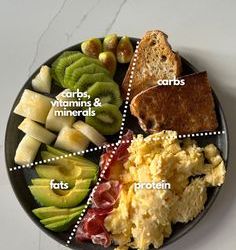
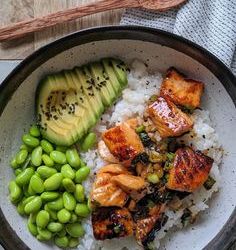
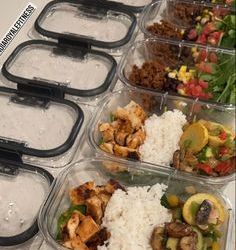
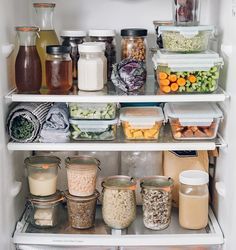
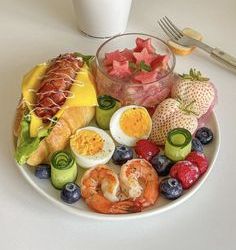
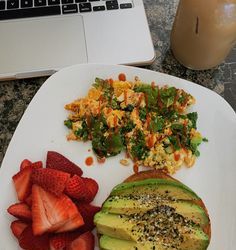
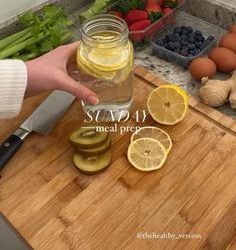
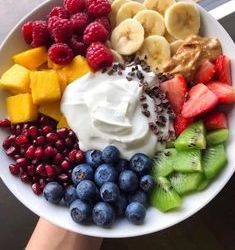
Poise & Progess: Formulating My Meal Plan
Firstly, I am not an expert or dietician or whatever. With the help of Chat GPT I’ve compiled a list of meals and snacks that I can incorporate into a meal plan and that will allow me to reach my fitness/body goals.
I will also mention that I mainly follow a pescatarian diet but I am not entirely strict with it. I find that cutting out meats, not including seafood, works well with my body and digestive system but I don't mind a grilled chicken salad every once in a while.
So below you'll find my balanced meal plan grouped by meals.
Certainly! Here's the balanced meal plan grouped by meals, without the days specified:
Breakfast:
Scrambled eggs with spinach and tomatoes
Greek yogurt parfait with fruits
Oatmeal with bananas, nuts, and cinnamon
Whole-grain pancakes with yogurt
Whole-grain toast with scrambled eggs
Smoothie (spinach, banana, berries)
Overnight oats with almond milk
Avocado toast with fruits
Lunch:
Grilled chickpea salad with quinoa or rice
Chickpea stir-fry with noodles or rice
Lentil and vegetable soup with a roll
Spinach and feta stuffed bell peppers
Quinoa and black bean bowl
Shrimp wrap with a side salad
Tuna or chickpea salad with whole-grain bread
Snacks:
Greek yogurt with nuts and honey
Hummus with carrot and cucumber sticks
Cottage cheese with mixed berries
Apple slices with peanut butter
Handful of almonds and dried fruits
Celery sticks with almond butter
Dinner:
Baked salmon with broccoli and sweet potato
Lentil burger with mixed greens and veggies
Grilled shrimp with quinoa and veggies
Tofu stir-fry with brown rice
Grilled fish with sweet potato and asparagus
Baked fish with roasted veggies and couscous
Stuffed bell peppers with a side salad
If you'd like, you can feel free to mix and match these meal ideas to create a balanced and varied eating plan that suits your own preferences, goals, and dietary needs.
#level up journey#leveling up#black girl moodboard#black woman in luxury#feminine energy#hypergamy#luxury aesthetic#luxury lifestyle#soft life#femme fatale
669 notes
·
View notes
Text
Prescriptive diet culture, especially (but not exclusively) the sort aimed at losing weight, is ableist and sizeist, with frequent undertones of racism, classism, and sexism. It relies on the premise that all bodies can and should fit into a certain size and a certain range of “health” and ability, that fat and disabled bodies are inherently lesser, and frequently relies on patronizing or limiting the options of poor people for their alleged “own good,” stigmatizing or patronizing the food choices of non-European cultures, and judging women’s and perceived-women’s bodies more harshly than men’s bodies.
In response to this, various fat liberation, body positive, and health-at-every-size movements have arisen to challenge this narrative to varying degrees. One of the alternatives often promoted in these contexts is “intuitive eating,” in which people eat what their bodies crave, whenever they’re hungry, instead of following a prescriptive diet or schedule. This is framed as radical, liberatory rebellion and self-actualization against diet culture.
Intuitive eating is great for some people. However, there are some problems with promoting it as a universal solution.
First of all, “Everyone should eat intuitively” is just as prescriptive as any other prescriptive diet. It still frames food choices as something with a right and a wrong answer. What superficially sounds like “Eat whatever you want” actually becomes “You must eat whatever you want, and examine carefully whether you actually want it, and defend your choices accordingly.”
Secondly, intuitive eating is fundamentally inaccessible to the majority of the world’s population. Perhaps if we lived in a Star Trek universe where we could just command a replicator to create food and have it instantly ready for us, then most, if not all people, could eat intuitively. But in our own world, our food choices are constrained by time, money, and availability, as well as restrictions like allergies and sensitivities.
When I think about what food I want to eat, I have to think about what I already have. What I can afford to buy. What I have the time and energy to prepare. I might “intuit” that I crave a steak, but what I have readily on hand is a bowl of cereal. Intuition won’t help someone with chronic fatigue who can’t stand at a stove for long or chop vegetables, or someone on food stamps who has to stretch their budget, or someone who works long shifts and comes home exhausted, or a parent of three children with food allergies who only feeds themself leftover scraps from feeding them. Who has time and energy to cook a meal from scratch? Who has money to go out to a restaurant? Whose invisible and underpaid labor -- farm workers, grocery workers, restaurant cooks, homemakers -- does this system rely upon?
The third problem with promoting intuitive eating as a universal solution is that many foods are manufactured in such a way as to sensorily mislead the eater about their properties. The idea that “artificial” or “processed” foods are somehow “worse” than “natural” foods -- or that those are meaningful categories -- is ridiculous and baseless. However, it is a fact that many foods are made to mimic the look, taste, smell, and texture of foods they do not actually contain. This makes it harder for eaters to “intuit” a food’s properties by the usual means. Eaters may have to rely on ingredients lists and nutritional information rather than sensory input alone. This is especially true for people who have specific nutritional needs, like allergies or nutrient deficiencies, to either avoid or seek out specific food attributes.
Finally, even if all other obstacles were eliminated, some people are just not good at intuiting their own food needs. People with executive functioning disabilities may forget that they’re hungry, or not recognize their bodies’ hunger signals. Not everyone is naturally good at piloting a meat suit. Food is difficult, and it’s okay to need external reminders to refuel.
Intuitive eating rhetoric can sound suspiciously similar to the common rhetoric of the “natural” “wellness” movement, stemming from the premise that all bodies are born with a natural alignment to a certain standard of “health” and normative ability, and only external factors and individual choices can “corrupt” it. In reality, there are no normative bodies or abilities. Plenty of people are born with food-related disabilities, whether difficulty remembering to eat, anxiety, susceptibility to nutrient deficiency, allergies, diabetes, or all kinds of other conditions. Food is hard. Harder for some people than others. And that’s okay.
There’s nothing wrong with intuitive eating, but it’s not a universal solution to everyone’s food difficulties. We need affordable, accessible food for everyone. We need everyone to have the free time and support they need to perform all activities of daily living. We need living wages for everyone at every part of the food supply chain. We need clearly labeled food ingredients and nutritional values. We need a society where everyone has the resources, time, and support to eat whatever they want, and the information to know what they’re eating. And then, maybe, intuitive eating can be a more attainable goal for people who want it.
We also need a society in which bodily autonomy is respected, and people’s food choices and other health and bodily choices are rightly regarded as no one else’s business. We need widespread recognition that there’s no standard of health or ability that anyone “should” have and no way that anyone “should” eat, and that what matters is ensuring that everyone has equitable access to resources, which each individual can choose how to use, whether that’s eating frozen dinners every day, growing vegetables for fun, eating only purple things, or using a timer to remember when it’s time to eat. But until we achieve that society, “intuitive eating” might as well mean “let them eat cake.”
287 notes
·
View notes
Note
Okay but what about modern Amnabel's group food preferences?
cracks knuckles. Alright, let’s get into it.
Annabel Lee - complicated. Annabel likes to have the upper hand in every situation, even in casual afternoon lunch outings. She will adapt to almost anything put in front of her. For example, if she goes to someone’s house and they serve tea and scones, she will claim that they are her favorite. Are they? Who knows. She will play it as if whatever is given is something she enjoys immensely, creating the illusion that the world seems to cater to her- that she got lucky that it was her favorite meal. She does this ALL. THE. TIME. “Oh, they are serving pie. That is one of my favorites.” No it is not. She is just making it seem like it is to create the look that “Wow, how lucky for her. The world seems to love her- they’re serving her favorite food!” You get it? She says it’s her favorite for convenience sake. This is why Prospero brings her so many varied pastries when he can. He’s trying to figure out what she actually likes.
As for what she actually likes: She has a pretty varied palette. She does prefer food that is considered more “common” as it tends to have more flavor, and she absolutely loves American food far more than what she had at home. Is the type of person to eat popcorn one piece at a time, but then resorts to shoving 4-5 pieces in her mouth when she’s invested in whatever she’s doing.
Keeps up appearances by ordering what is expected of her. Teas, light foods with small portions.
- packs snacks throughout her school day like grapes or small cheese cubes. Dainty, barely filling little things.
- She loves spicy foods. Hot curries, salsas, she loooves the burn.
Ada - Also keeps up appearances, but obviously not the same way Annabel does. She will pretend to only like more expensive things, but she honestly thinks such things are too bland. She’s a southern girl used to flavor and savory dishes.
- LOVES cheap frozen dinners. She would rather die than admit this of course. Like think those frozen mac and cheeses you put in the microwave.
- She can and will force herself to eat something she doesn’t like, especially if Annabel/Prospero is eating it.
- Hates squid. Calamari? Yuck.
- She likes to comment on things she eats like she’s doing a shitty food review on Youtube. The only person that listens is Will, but you can’t really tell that he’s even paying attention.
- Loves celery
Prospero - This man has a sweet tooth, but he knows how to keep it tamed. He has a very balanced diet and makes sure to make every lunch or breakfast filling enough to last him through morning classes.
- Salad man. He will put so much shit into a salad. He’ll make days worth of salad and sometimes he and Annabel will just eat the whole thing in between classes.
- His favorite dressing is balsamic vinaigrette.
- Very rarely eats fried foods. Corn dogs are cool and he’s more likely to eat one of those rather than something else fried
- For snacking he always gets the things that are called “thins” or “light”, and he is very strict when it comes to the “no eating three hours before sleeping” rule.
- This man hates cashews
- I HC prospero as a mama’s boy idk i get the vibe. He grew up having homemade pasta and refuses to eat it if the restaurant isn’t like locally Italian.
Montresor - Big on steak. Big on potatoes. Big on veggies when they’re roasted or oven baked or anything where they’re mixed up and peppered and cooked. Dude will eat a raw carrot for fun though
- crunches loudly on chips. he does it on purpose.
- has a surprisingly shitty spice tolerance. It’s not BAD, but his face will get red and he tries to play it off.
- Likes messy finger foods like ribs
- Licorice kind of guy. specifically red.
- Prefers green apples over red ones
- really likes blue cheese, especially for his wings
- cannot STAND marzipan anything
Will - Peaches peaches peaches peaches pea-
- Prefers simpler foods. Basic ham and cheese sandwiches, a bag of chips…normal and boring.
- gets overwhelmed when served anything more complicated than what you’d get at an Applebees. He doesn’t really think he nor his body are suited to eat such things. They’re TOO delicious and he isn’t worth it.
- He loves cheesecake brownies. He’s literally only had them twice in his life but he would go insane if he ever saw any for sale anywhere
- The drinks he gets at coffee shops are considered “girly” to Montresor, so he only buys them when he’s alone. Like fruity refreshers and stuff.
- He would like a lot more food if he actively attempted to try new things, he just has no desire to treat himself.
- eats wheat thins for fun
- Only eats 1 singular fruit for breakfast or just skips it all together.
- would probably start crying if he ate a soup. it’s warm and filling and it makes him feel like a waste of space. the warmth settling in his stomach reminds him that he’s real and he hates it.
#nevermorgue modern au#nevermore webcomic#nevermore webtoon#will nevermore#nevermore will#montresor nevermore#nevermore montresor#nevermore prospero#prospero nevermore#nevermore ada#ada nevermore#nevermore annabel lee whitlock#annabel lee whitlock nevermore#annabel lee whitlock#nevermore annabel lee#annabel lee nevermore
78 notes
·
View notes
Text
75 DAYS HARD CHALLENGE: DAY I
Previously I announced that I will begin the 75 Days Hard Challenge at the first of July. For anyone unfamiliar, the Challenge takes 75 Days and follows these daily rules:
Choose a diet and follow it (without cheat meals or alcohol)
Complete two 45-minute workouts daily (one needs to be outside no matter the weather)
Drink a gallon of water every day
Read 10 pages of nonfiction
Take progress pictures
If you skip or miss a task you must start over
Things you should know:
I decided to try this challenge because I want to improve my mental toughness and physical fitness (also I want to prove to myself that I am consistent). It's probably not for everyone, so there is also a soft version of this challenge called 75 Days Soft Challenge.
I prepared for this challenge a month in advance. I tried out what diet suits me the most without craving cheat meals, decided on what books I want to read and what kind of workouts are the best for me.
I don't want to bother you with a daily follow up of my challenge, but please consider I'll try to do an update every 1-2 weeks.
"All great things have small beginnings."
My current routine on this challenge varies from day to day because I do work shifts but there are a few things that stay consistent during this challenge:
Diet:
I decided to do IF with a 16:8 ratio. I start eating at 10am and have my last meal at 6pm. Mostly low carb, high protein. No meat, no sugar, limited dairy. Please consider that every human is different and what may work for me, won't do it for you. I decided to become vegetarian a month ago and I don't regret it yet.
2. Workouts:
I am not an athlete. Therefore two heavy workouts a day would cause me injuries. I'm taking a 45 minutes outdoor walk everyday and the second workout is whatever suits my day the most. For example on Mondays I'm going to a yoga class, therefore this will be my second workout.
3. Hydration:
To be honest, I had to change this one a bit. I'm drinking one black coffee every morning and I'm also having a tea before I go to sleep. This intake plus a gallon of water would be too much for my body. I decided to drink 3 Liters of water everyday and the missing 0,7 liters will be tea and black coffee. I'm not drinking anything else for the duration of this challenge. No soft drinks, no alcohol, no milk (except for coconut milk for my overnight oats).
4. my non-fiction reading list:
Patrick Lencioni - The Five Dysfunctions of a Team
Dale Carnegie - How to Win Friends and Influence People
Yuval Harari - Homo Deus
Yuval Harari - 21 Lessons for the 21 Century
Daniel Kahneman - Thinking Fast and Slow
James Clear - Atomic Habits
Robert Greene - The 48 Laws of Power
Robert Greene - The Art of Seduction
Erich Fromm - The Art of Loving
Oliver Burkeman - Four Thousands Weeks
James Carse - Finite and Infinite Games
Seneca - Letters from a Stoic
Plato - Allegory of the Cave
5. last but not least - the progress picture:
I hate taking pictures, so I won't really share them but I made a folder on my phone and taking the photo is the first thing I'm doing in the morning to get it off my list.
Bisous!
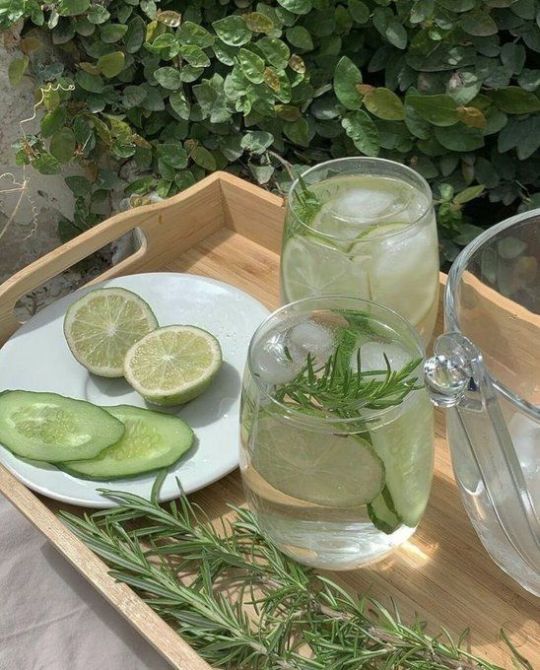

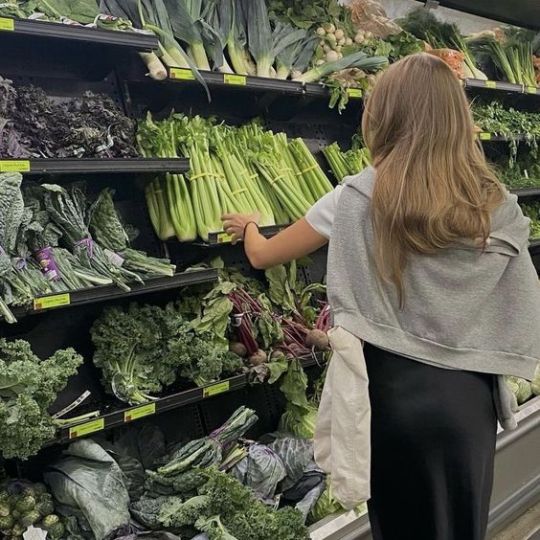
#that girl#self care#clean girl#green juice girl#routine#pink pilates princess#it girl#glow up#habits#75 hard#75 days#75 days hard challenge#challenge#tw: dieting#tw: diet#intermittent diet#diet#diet and fitness#healthy eating#nutrition#fitness#workout
752 notes
·
View notes
Note
Hi!!! I just read your poly Iwaoi (and will slowly make my way through the rest of the writing hehe) and was wondering if you could write poly SakuAtsu???
If not I will take absolutely anything for Semi Semi or Tendo <333
Thank you if you end up writing this <3
Oh my gosh yes! I definitely want to write more for Semi and Tendō, but first I have what you requested.
Hope you enjoy!
>>>>——————————>

Being in a Poly-relationship with Miya Atsumu and Sakusa Kiyoomi would include:
• Atsumu will wind Sakusa up constantly, the amount of sponges Miya has taken to his face is surprisingly high - especially when he feigns biting something or smearing dirt somewhere.
• Sakusa gets his own back however, when you come to one of their training sessions and hold your palms up for a high-10 he will hesitate but give you one with a smile. Atsumu will do the same and Kiyoomi will look at his hands with disgust and walk away.
“Wha— but you gave (N/n) a high-10!”
“I love them.”
“Excuse me?!”
• There is always something interesting going on, Atsumu will come home with a random story, Sakusa adding a tale of horror to the mix, and you’ll tell them about your day. Communication is so good, even if it took more time, Kiyoomi feels comfortable opening up to you both now.
• You each take turns in cooking when you can or sometimes you’d do it together. Sakusa cleans as he goes and leaves the kitchen area spotless - then there’s Atsumu who manages something.
“This is really nice Atsumu, thank you!”
“Yeah, give our regards to Osamu will you?” Sakusa comments, always blunt.
“Hey?! I cooked this, what made ya think it was ‘Samus huh?” Unfortunately you know he’s lying but you chose to ignore it momentarily…
“Because at this rate, I know his cooking better than I do yours.” Sakusa highlighted with a cocky smirk, yourself following up.
“Plus uh, the delivery wasn’t exactly discrete…”
• Jealousy? Atsumu certainly shows it more and is by either if your sides demanding space if you or Sakusa look uncomfortable. If it’s you, while Atsumu is intervening, Kiyoomi sneaks you away and poor Miya turns around to emptiness after expecting praise. It’s so cute.
Sakusa on the other hand sort of unnerves others with his silent glare and disgusted presence alone. Yourself and Atsumu find it amusing in all honesty.
• Everyone always jokes about how you and Sakusa manage to put up with Atsumu and your partners’ responses kill you every time.
“It’d be more trouble to get rid of him.”
“Kiyoomi.”
“Why? Do you want him?”
“Kiyoomi!”
• Atsumu gets overwhelmed with emotion whenever either you or Kiyoomi doing anything remotely romantic/kind for him. Like you’ll buy him flowers or team up to make fatty tuna and he has tears in his eyes making up a lie about hayfever.
• Sakusa expresses his love very much by acts of service, the place is usually spotless and if you mention anything you need it’s there the next day. Atsumu however is very vocal about his love for you both, saying mushy stuff all the time if you catch him in one of those moods. However it’s really nice to spend quality time together.
• You are also victim of whatever diets they are assigned during volleyball season, and they always get a bit pouty if you eat something they can’t in front of them. Atsumu is more susceptible to teasing than Sakusa, he sticks to his diet without complaint.
• If you ever watch a series together due to varying tastes, Atsumu has a habit of commenting throughout the film - Kiyoomi humming along as the two of you engage in deep conversation about some nonsensical scene.
• Involved in such chaos is also the mini completions yourself and Atsumu have that involve getting Sakusa flustered. Pick up lines. Yes you’ll agree with Kiyoomi that it’s stupid, but it is fun.
“Oh oh Omi-Omi, are ya a hitter? Because I can set ya up~” Atsumu started, leaning to the left of Sakusa while he cleaned his trainers.
“Idiot.”
“Kiyoomi, if I serve you my heart will you receive it?” You slid to the right of the ravenette.
“Yes (Y/n) but why are you—“
“Are yer a volleyball? Because I’d hit that~” Atsumu smirked with a wink, yourself following up.
“Oh you play volleyball? Let me grab my kneepads so I can slide into your DMs gorgeous~”
Immediately Kiyoomi became flustered and covered his face.
“Yes I win! Take that Atsumu!”
“Nah that was a fluke!”
“Oh you’re definitely a setter, we both know you’re good with your hands~” Came your lowered voice, both men flustering now.
“I— shit (Y/n)— yeah, you win…”
• If you feel upset or saddened, these two are a dynamic duo - Atsumu has instantly enveloped you in his arms with either soothing words or threats to the world, meanwhile Sakusa has equipped himself with blankets and snacks to cheer you up. Even their cute bickering over you makes you smile and you can’t help but hug them both.
• Sick? Oh Sakusa never gets sick but if you or Miya come down with a cold, he is ON IT. You’re scolded for you idiocy and told to stay away from him but he is the most attentive doctor whilst you two are confined to a bed. Medication? Check. Home remedy? Covered. Healthy food? Duh.
Atsumu is needy but more grateful for your cuddles and kisses during this ‘tough time’. You and Kiyoomi are rolling your eyes at his dramatics.
• Sakusa particularly finds comfort in cleaning day, it’s one regularly reserved for a deep clean and because you see how content Sakusa is, you join in. Well Atsumu takes convincing but that’s easily done with food or kisses.
• As proud members of the MSBY Black Jackal volleyball team, it means you get VIP tickets to every one of their games. (Atsumu and Kiyoomi secretly compete for who gets to give them to you but shhh).
• They also get a bit competitive about whose number you’ll wear for each game, as naturally you have merch for both of them but mainly MSBY in general. They basically died when you wore Hinatas number one time.
“Look I’m just going to wear my MSBY jersey, with my name on it.”
“But (N/n)—“
“No, I like it. It’s the first one you both got me so it’s important.” You’d kept it all this time, the pair blushing slightly with Kiyoomi replying to you.
“That’s fair, we appreciate the support regardless of what you wear.”
“Well I mean…”
“Atsumu.”
• They have a tradition where they both come to the railing to greet / hug you after their games and they’ve done so with their team. Atsumu practically fell over it once but you caught him and he played it off - Kiyoomi still rips him for it.
• They’re both extremely aporecitive of your support with their volleyball careers, especially considering they’re off travelling for matches. They bring back souvenirs or snacks, with Atsumus’ being more random whilst Kiyoomis’ gifts are more thoughtful. At least with the Olympics you were able to come with them for part of the trip and they were determined to show you everything.
• Overall, it’s wholesome chaos - you have your disagreements but manage to make up and compromise (some with more persuasion than others) but you each love each other too much to care.
<——————————<<<<
[ Masterlist ]
#sakusa kiyoomi x reader#miya atsumu x reader#sakusa x atsumu#sakuatsu#haikyuu#haikyuu x reader#haikyuu scenarios#haikyuu imagine#haikyuu headcanons#anime x reader#anime imagine#anime headcanons#sakusa fluff#sakusa kiyoomi headcanons#atsumu headcanons#atsumu fluff#miya atsumu headcanons#haikyuu imagines
90 notes
·
View notes
Text
Hey here’s a protip for everyone. People with limited diets are usually super miserable and get made fun of mocked and shit literally constantly even well into adulthood when people really should have learned that commenting on what other people are eating is rude. so maybe let’s step away from “ooh ha ha ur a picky eater oooh you have a little baby diet” as a gotcha when we’re making jokes about people we hate for whatever reason. People with limited diets have them for extremely varied reasons and are not exactly an overly privileged overly catered to group who need to be taken down a notch. There’s better dumber far less offensive shit you can pick on if you just feel the absolute irresistible need in your soul to be cruel in service of a joke about how much you hate a particular subculture of people you think are dumb for whatever reason. maybe let’s retire this one.
30 notes
·
View notes
Text
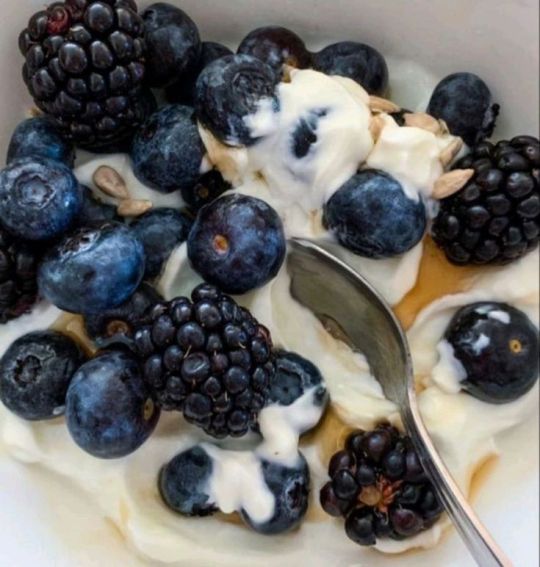
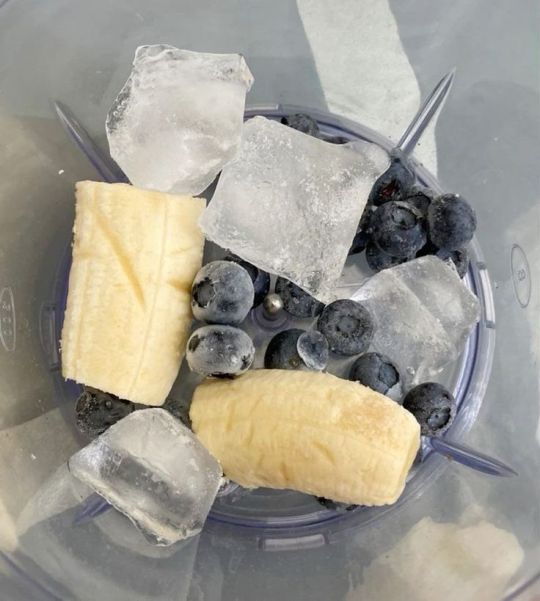
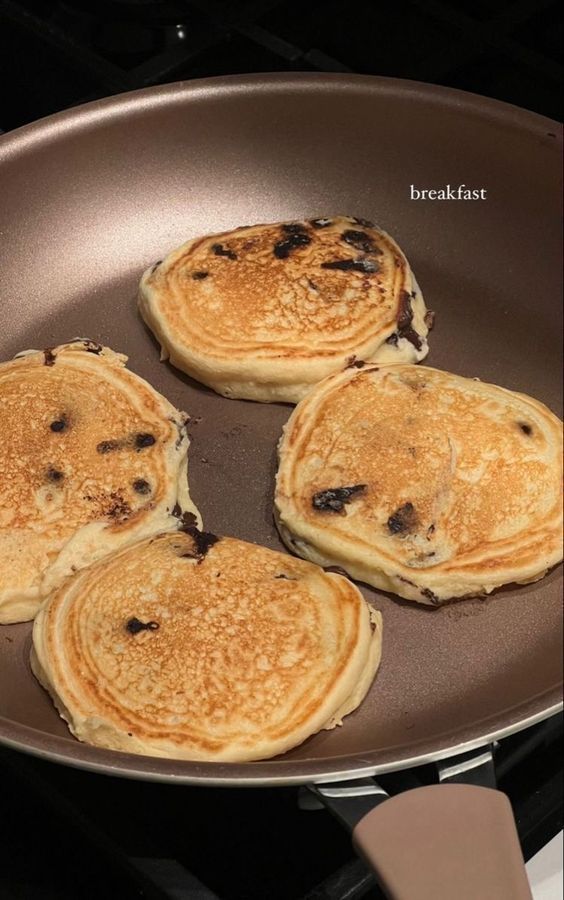
the effect of what (and how) you eat
okay, this is a big topic. and so this is a long post. i'm going to be going over the effect of what you eat and why it's important to think about what foods you are consuming. don't worry! i do my research-- at the end of the post will be a few resources, and i'll show where i've gotten my information.
lots of dietary advice is available over the internet, but often the people absorbing the information do not understand the why. knowing where your information is coming from,, and not believing everything you read online is key to actually maintaining a good, healthy diet.
before you read: TRIGGER WARNING THERE IS MENTION OF EATING DISORDERS,,
let's start with this: like everything in this age, food is a double-edged sword. overconsumption and underconsumption can both kill you. what you eat; how you eat--it can help or hinder whatever your goals may be.
here's the effect/s: the connection between diet and mental health is profound. while we’ve long understood that diet plays a crucial role in overall health, emerging research in the field of nutritional psychiatry sheds light on how what we eat directly impacts our emotional well-being and mental state.
the brain-gut connection: the gut is closely linked to the brain. trillions of living microbes in our gut have essential functions, including synthesizing neurotransmitters. these neurotransmitters send chemical messages to the brain, regulating sleep, pain, appetite, mood, and emotions.
to improve your gut health, here's what you can do:
by eating a varied diet that includes fruits, vegetables, whole grains, nuts and seeds, essential nutrients are provided which feeds the beneficial bacteria in the gut. high fibre foods promote gut health by supporting good bacteria.
fermented foods, such as yogurt, kefir, sauerkraut, kimchi, and miso are rich in probiotics—live beneficial bacteria that boost gut health. kombucha (a fermented tea) is another option.
avoiding reducing processed foods can reduce the diversity of good bacteria in your gut. when i say processed foods, i'm referring to ultra-processed foods, for example, fried foods and frozen meals. they may be easy and cheap, but they include preservatives, artificial colouring, chemical flavouring and texturing agents. all of which our bodies are not made to consume. it's ignorant to tell you to avoid processed foods at all costs. that's not realistic, and a horrible mindset. instead, you should manage your intake. enjoy treats every now and then and don't punish yourself for it.
hydration is key to a healthy gut. water supports digestion and nutrient absorption.
stress management, eating well and exercise can also help your gut microbiome's health.
by having a healthy gut microbiome, you are helping your body to have lower chronic inflammation, have regular bowel movements and more effectively absorb nutrients. therefore, you will have a stronger immune system, have clearer skin and support your digestion and metabolism.
why eating protein matters: proteins are made of amino acids, which serve as the fundamental building blocks for various structures in our bodies. these amino acids are essential for forming enzymes, hormones, tissues, and DNA. protein is vital in maintaining and building muscle mass. when activities like strength training and physical exercise are engaged in, protein helps build and repair the muscles.
hemoglobin, a protein in our red blood cells, transports oxygen from our lungs to other tissues. without adequate protein, oxygen delivery would be compromised. antibodies, which defend against infections, are made of proteins. a well-functioning immune system relies on sufficient protein intake. collagen, a protein, maintains the integrity of our skin, hair, and nails. adequate protein supports healthy skin elasticity and wound healing.
the recommended dietary intake for protein relies on factors such as age, weight, height, gender, activity and overall health. remember that individual needs can vary, so consulting with a healthcare provider or registered dietitian is advisable to determine your specific protein requirements.
many diets exist that cut out entire macronutrients (keto for example) but that is not the way. each macronutrient has great importance in helping the body function.
carbohydrates are the body's (including the brain) preferred energy source. they enable muscle contraction during exercise and even at rest. carbs maintain body temperature, support heart function, and aid digestion.
the keto diet comes from the belief that when carbohydrates are not providing energy (are not being consumed), the body will use reserved energy stored in lipids (fat). while this is true, this diet is not maintainable-- it throws the body out of whack, storing more energy to maintain homeostasis.
fats provide energy and are essential for hormone production. they contribute to cell growth, brain health and vitamin absorption.
our brain is composed of ~60% fat. fats are essential for neurotransmitter production, affecting mood, cognition, and hormonal signalling. cholesterol, often associated with heart health, is a precursor for steroid hormones (testosterone, estrogen, progesterone). without adequate cholesterol, our body cannot produce these essential hormones.
effects of diet on mood: firstly, going long periods without eating can cause a drop in blood sugar levels, leading to tiredness and irritability. secondly, consuming excessive amounts of food can make you feel tired and lethargic.
choosing the right carbohydrates can help maintain blood sugar levels. our brain primarily runs on glucose (obtained from carbohydrate-rich foods). you can opt for slow-release carbohydrates to maintain steady energy levels. slow-release carbohydrates (a.k.a low GI food) provide a more sustained and gradual release of energy compared to other carbohydrates. examples include fruits, vegetables, whole grains (grainy bread, brown rice, oats) and sweet potatoes. high GI foods rapidly spike blood sugar levels due to their quick digestion and absorption.
going too long without eating can lead to low blood sugar levels, resulting in irritability and fatigue. overeating to discomfort can also leave you feeling tired and lethargic. consistent, moderate-sized meals help maintain stable blood sugar levels and promote an even mood.
i know, overeating is an issue that one cannot simply 'turn off'. it's important to know the psychology, and if you struggle with it--please talk to a health professional.
here is what i can tell you about overeating:
overeating is typically a learned behaviour and habit. certain foods are associated with pleasure and reward. when enticing food is encountered, we engage in eating behaviour and immediately experience pleasure. this reinforces the habit, making it challenging to change.
overeating may be serving as a coping mechanism for emotions. when feelings of sadness, disappointment, frustration, or even joy arise, someone may turn to food. emotional eating provides temporary relief, reinforcing the behaviour.
the first delicious bite triggers pleasure, satiates our appetite, and improves our emotional state. our memory associates this reward process with eating, leading us to continually seek that pleasure. this is due to immediate reward.
people with eating disorders may disregard their health, body, body image and lifestyle goals. they use food as a way to punish themselves and gain control over their life. restrictive eating disorders can lead to 'binging behaviour'. bingeing serves as a way to numb emotions. anxiety, stress, and depression can trigger binge behaviours. consuming certain foods or substances (like junk food or alcohol) releases dopamine, the “feel-good” neurotransmitter. this chemical rush can lead to physical addiction, reinforcing bingeing. a culture (unfortunately which is abundant in the world today) that emphasizes consumption as a measure of worth can contribute to bingeing. messages about thinness, drinking, and material possessions can drive these behaviours.
i hate that i am having to say this but alcoholism is bad. and caffeine addiction is bad. in no way is harming your health aesthetic or 'a vibe'.
limiting caffeine and alcohol can also improve mood. again, i'd like to stress that there is never going to be one perfect diet, and allowing yourself to enjoy whatever food you like is perfectly fine- as long as you are doing so in moderation.
everything is a balance.
resources/further reading, to end: Fat Requirements For Optimal Hormonal Health - Clean HealthHow Dietary Fat Benefits Hormones - Women's International Pharmacy (womensinternational.com) The truth about fats: the good, the bad, and the in-between - Harvard HealthDietary fats | healthdirectMacronutrients: Definition, importance, and food sources (medicalnewstoday.com)Know Your Macros-Why Macronutrients Are Key to Healthy Eating | Cedars-SinaiWhy the Proper Balance of Macronutrients is Vital for Good Health - Functional Diagnostic Nutrition What Is Protein & Why Do You Need It? (eatingwell.com)Protein: Why Your Body Needs It (webmd.com)Protein | The Nutrition Source | Harvard T.H. Chan School of Public HealthBinge-Eating Disorder (Compulsive Overeating) | Psychology Today AustraliaThe Psychology Behind Binge-Watching | PsychregBingeing: Why It Happens and What You Can Do About It (greatist.com) Understanding Overeating: The Psychology Behind It - Listen-HardWhy stress causes people to overeat - Harvard HealthThe Truth About Overeating | Psychology TodaySlow-release carbs list (medicalnewstoday.com)Why understanding carbs (and how to count them) matters | Diabetes UK Food and your mood - Better Health ChannelHow food can affect your mood | Nutrition AustraliaStress-related stomach pain: When to see a doctor - UChicago MedicineWhat Is Gut Health? A Comprehensive Guide to Digestive Wellness | U.S. News (usnews.com)Why Gut Health Matters More Than You Think | Well.Org Probiotics: What They Are, Benefits & Side Effects (clevelandclinic.org)Probiotics: What You Need To Know | NCCIH (nih.gov)What should I eat for a healthy gut? - BBC FoodLet’s Eat: How Diet Influences the Brain (brainfacts.org)
i know the fact that the resources are one big block may be annoying, but i don't have the commitment to in text reference lmao. hours of research and writing for a blog post, yes, but in text referencing is just too far.
i hope you learnt something
❤️joanne
#elonomh#elonomhblog#student#student life#academia#chaotic academia#productivity#study blog#that girl#becoming that girl#sports science#anatomy#health science#health and wellness#healthy life#healthy lifestyle#wellness and health#mental health#health & fitness#healthylifestyle#health tips#wellness aesthetic#wellness girl#wellness moodboard#wellness#wellbeing#healthy living#vitamins
122 notes
·
View notes
Note
please tell me your Quintesson biology headcanons

Hello again!
I do not have Archie's little reaction doodling skills, but please imagine me in front of a little presentation screen with glasses and a pointer stick ready to start presenting/teaching or whatever. Or imagine the Charlie Day meme. Same vibes
Anyways! There are two main categories of my quint biology head canons at the moment: 1) how/what they eat and 2) mental interface and how it's the precursor to mnemosurgery (aka: the author's barely disguised fetish)
I want to focus on the first one for this ask. I got another ask about the biology head canons, so I'll talk about the second category in there. So be on the lookout!
Anyways! The short answer is that quintessons eat energy. The long answer >:) the long answer is that quintessons have a varied diet that can range anywhere from raw charge to refined energon or even organic carbon-based fuels. They can drink and process liquid fuel into usable energy but traditionally, quintessons feed of the living charge of other technorganic organisms. In fact, I think I'm just going to let Ada herself explain it via a brainstormed scene where she's talking to another one of my OCs

Then I also have this little description of the entire process of hunting and killing another technorganic. Ada never hunted and killed like this but other quints did and some still do. So obviously a warning for a somewhat detailed description of killing, butchering, and, eating another living thing of an ambiguous species

Thank you for coming to my TED Talk! And thank you @archie-sunshine for listening to me ramble about Ada damn near every day!
#transformers#maccadam#transformers oc#quintessons#my ocs#Ada#chill machine answers#please keep these asks coming you guys. i am having so much fun talking about this#friends ocs#meter
53 notes
·
View notes
Text
Cosmic's Malleyuu Whump vs Flufftober: Day 24
collapsed building / Comfort Food

Malleus's shoulders were stiff at the table, back hovering a few inches off the back of his seat in his rigidity.
"Malleus," said Lilia, in a slight-castigating tone, "perhaps you'd like to relax a bit."
He was almost as stiff as Sebek, whose shoulders were squared parallel to the hard surface of the table he rested his hands upon.
In proper dining fashion, Sebek did not have his elbows resting on the table, but Malleus did, having cupped his hands over his mouth.
It was difficult to tell whether he was bored or nervous. Likely, it was a combination of the two, as Yuu had been cooking for quite a while.
Their little group had been invited over for dinner about a week and five hours ago. Lilia knew this, because Malleus had told him of the exciting news almost as soon as it had happened, and had then reminded him periodically so they would not forget and miss it.
And now, despite his posture, Malleus was rigid with anticipation.
Lilia had tried to ensure he ate a varied diet as he grew up. Earthworms, the souls of the damned, tree fibers. ] It wouldn't do for a king to be picky, even if he could have anything at the snap of his fingers.
Still, Lilia knew Malleus had never had a 'taco' before. He'd barely tried one himself, and he wondered how Malleus would react to the taste.
He wondered about Silver too, but Silver didn't seem so concerned with the food offerings.
"Sebek," said Lilia, "have you ever had a taco?"
Sebek blinked at him momentarily.
"Yes!" he replied. "There is a restaurant near my house in the Briar Valley that serves them, though I have not been there in many years."
"Hmmm. Malleus, are you excited to try a taco?"
Malleus's joints seemed to pop as he turned to look at Lilia.
"Of course," he insisted. "I am excited for this opportunity of cultural exchange on Yuu's end. There are few things as broad and yet as intimate as food."
"I must agree," cut in Silver. "It's always nice to be able to try... regular human food."
They all nodded in agreement, before falling back into silence.
"Just a few more minutes!" shouted Yuu from the kitchen. "I promise!"
"There's no rush," said Lilia in a raised voice, and the dining room was silent again.
Lilia wondered what Malleus was thinking about. Certainly, there were a number of avenues to consider, especially within the walls of Ramshackle.
Truly impressive, how Yuu had managed to turn around the half-collapsed building from a death trap into one of the most coveted gathering spaces on campus, and he was glad to be able to enjoy it this evening.
Malleus had seemed to be feeling the same way, as though Lilia knew he'd been here before, he'd eaten up everything in sight hungrily, commenting on Yuu's taste in all things interior design.
"Ok, ready everyone!" Yuu suddenly burst into the dining room, light spilling in from the kitchen, and the delicious scent of home cooking wafted in. Lilia resolved to act in a way that would give Yuu the best impression of the group, for Malleus's sake.
They were balancing two large plates on either of their hands, and Grim, who was on their shoulder, appeared to be holding some small bowls. The two of them quickly got to work arranging everything on the table, passing out the plates and napkins with it.
"Ok! So here," said Yuu, pointing to the small bowls Grim had been holding, "are some of the sides. Just take as many tacos as you want, and you can put whatever you want on them. Cheese, tomatoes, lettuce, it's your choice."
Two of the places Yuu had been holding were stacked high with the tacos. They were golden little tubes, filled with some sort of chopped meat.
Lilia took one right away and bit into it, finding it crunchy and savory. He nodded in enjoyment to the boys, and they unfroze themselves enough to take a few for their own.
Instead of eating the rest of it plain, Lilia used the spoons in the bowls to give himself some lettuce and tomato, and found the flavor significantly enhanced.
Malleus took five, not taking a bite before all of them had received his desired proportion of toppings.
Silver ate one carefully, chewing slowly. At first, Lilia couldn't tell if he actually liked it, but he ate his second much quicker.
Sebek tried a number of combinations of toppings, using each bite to its advantage. On his second taco, he poured tomatoes and cheese on it, and ate it with gusto.
"These are delicious, Yuu," said Malleus between bites. "Your skill for cooking is evident."
Yuu's electric smile seemed to spread wide enough to split their face in half, and Lilia realized they were now sitting as rigidly as Malleus was just a few minutes ago.
"Thank you!" they said gleefully. "I'm glad you like the,. It's ultimately a pretty simple recipe, but- well, I'm glad you like it."
Yuu's jitteriness almost seemed like a perfect inversion of Malleus's frozen stoicism, and Lilia realized something he'd already known.
They were perfect for each other.
He grinned to himself behind his taco, and Malleus made a show of eating and tried to maintain eye contact with Yuu as they watched him eagerly.
Ah, young love.
#cosmic whump vs fluff 2024#malleyuu#malleus x yuu#malleus draconia#twst yuu#malleus x reader#twst#twisted wonderland#collapsed building#Comfort Food
45 notes
·
View notes
Text
I'm legit worried about my brother.
So mom has a history of disordered eating- was anorexic in high school and college, growing up she was orthorexic (when.youre allowed to eat, but theres strict rules to what you can eat, usually cutting out entire food groups. Fad diets.) There's been some improvement in that she does let herself eat more than she used to, but it's still there.
My brother is a gym rat. And for awhile he was on paleo, then he was on keto and I disagree with the lifestyle but he seemed to be doing okay.
So then he cut out alcohol, which I think was a good move. He didnt drink copious amounts, but a few beers a week and overall alcohol isnt great for you so I think this was smart.
He showed up to Thanksgiving today like...super thin and tired looking and he was shaky.
So now he's cutting out animal products. He like... just drinks a smoothie with chia seeds and some tofu and vitamin supplements. Hes on some like superfood that has like 1000x daily dosage of vitamin c.
He says that his inflammation has gone down and he feels great, but he looks a lot like my grandpa did when he was going through chemo.
All he could talk about was his diet and all the things hes omitting from his food and crossfit or whatever the more intense form of crossfit is.
His wife was super irritated with him because he refuses to see a doctor about a possible misaligned disc because 'the doctor's just gonna tell me to put ice on it's which he does but then he just goes back to the gym where he irritates it more. And I think hes refusing to see a doctor because a doc is gonna tell him that he needs a more varied diet.
He goes on and on about his quality of life and how he doesnt want to decline slowly, but hes only 41. And I think like yeah staying active is good but theres a difference between doing a yoga class once a week and doing an intense workout twice a day- the more you exercise, the more prone to injury you become.
And I think like... psychologically its fear driven. Because we lost our aunt (76), both grandmas (96), great uncle (92), and an aunt by marriage (79) all in the past 2 years, all of the men of the older generation died in their 70s, and his wife's mom is starting to have health problems. So I think hes getting scared of getting old, I think this is the midlife crisis everyone talks about.
But like...
When my hands are shaking it's because I'm either anemic or because I'm short on protein. If you feel great why are your hands shaking?
97 notes
·
View notes